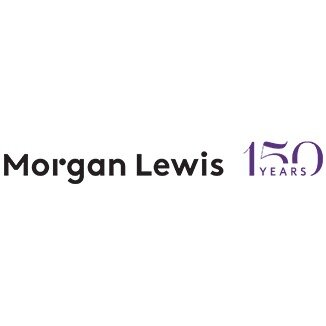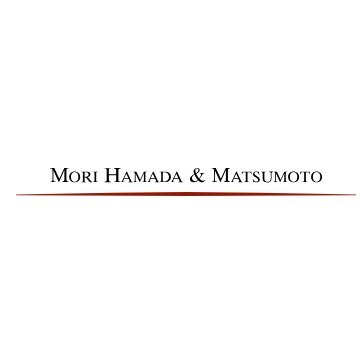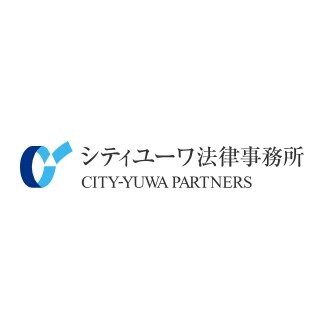Best Energy, Environment & ESG Lawyers in Chiyoda-ku
Share your needs with us, get contacted by law firms.
Free. Takes 2 min.
List of the best lawyers in Chiyoda-ku, Japan
About Energy, Environment & ESG Law in Chiyoda-ku, Japan
Energy, Environment, and ESG (Environmental, Social, and Governance) law in Chiyoda-ku, Japan, encompasses the legal frameworks and regulations governing how businesses and individuals interact with the environment, manage energy usage, and commit to responsible corporate practices. As a central ward in Tokyo, Chiyoda-ku is home to numerous government agencies, corporations, and civic organizations. The area plays a pivotal role in shaping and adhering to national and local policies related to sustainability, energy efficiency, pollution control, and corporate responsibility. ESG considerations have gained growing importance in recent years, with increasing focus on transparency, ethical management, and sustainable growth.
Why You May Need a Lawyer
There are several situations where consulting with a lawyer specializing in Energy, Environment, and ESG law may become necessary in Chiyoda-ku:
- Establishing a new business or factory that may impact the local environment.
- Seeking guidance on compliance with energy efficiency or emission reduction targets for existing operations.
- Responding to regulatory actions or government inspections related to environmental protection or pollution standards.
- Understanding and disclosing ESG-related risks and initiatives in public reports or investor communications.
- Handling disputes with neighbors, residents, or local authorities regarding noise, waste, or emissions.
- Pursuing or disputing licenses for renewable energy projects or utilities.
- Managing contaminated land, hazardous materials, or cleanup requirements.
- Navigating environmental impact assessments for new developments.
- Responding to shareholder demands regarding sustainability or governance practices.
A legal professional can help you understand regulatory obligations, prepare required documentation, and represent your interests in administrative or judicial proceedings.
Local Laws Overview
Chiyoda-ku operates under the broader legislative framework set by the national government of Japan while also following Tokyo metropolitan ordinances. Some key aspects relevant to Energy, Environment, and ESG include:
- Compliance with the Basic Environment Law and related regulations, which set national policy on pollution control, nature conservation, and sustainability.
- Adherence to Tokyo Metropolitan Government environmental standards, which can be stricter than national laws, covering noise, air quality, waste management, and greenhouse gas reduction.
- Building and development permits often require environmental impact assessments, public consultation, and risk analysis, especially for large-scale or potentially hazardous activities.
- Strict requirements for transparency and reporting under the Financial Instruments and Exchange Act, including ESG disclosures for publicly traded companies located in Chiyoda-ku.
- Guidelines for renewable energy integration, solar panel installation, and green business practices supported by the Tokyo Metropolitan Government and national incentives.
- Legal obligations regarding workplace safety, community health, and social governance as part of Japanese corporate law and local regulatory policies.
Understanding these overlapping legal frameworks is vital to maintain compliance and avoid penalties.
Frequently Asked Questions
What is ESG and why is it important for businesses in Chiyoda-ku?
ESG stands for Environmental, Social, and Governance. It refers to a set of standards for corporate operations that investors, regulators, and the public use to evaluate a company’s responsibility and sustainability. In Chiyoda-ku, businesses take ESG seriously due to regulatory requirements, investor interest, and community expectations.
Do I need special permits to start a renewable energy project in Chiyoda-ku?
Yes, renewable energy projects often require multiple permits, including environmental impact assessments, building approvals, and in some cases, specific energy-specific licenses from local or national authorities.
What are the key pollution control laws in this area?
Pollution control is governed by Japan’s Basic Environment Law, as well as Tokyo Metropolitan Ordinances on air, water, and noise pollution. Chiyoda-ku enforces these rules strictly, especially in central business and residential districts.
What happens if a company is found violating environmental laws?
Violations can result in administrative orders, fines, penalties, business suspension, or even criminal charges depending on the severity. Early legal consultation is critical if facing an investigation.
Are there incentives for businesses adopting sustainable practices?
Yes, national and Tokyo Metropolitan Government programs provide financial incentives, tax breaks, and technical support for companies investing in energy efficiency, renewable energy, and green innovation.
How can individuals report environmental concerns or violations?
Residents can report concerns directly to the Chiyoda Ward Office Environmental Protection Division or through Tokyo’s environmental hotline. Legal assistance can also help guide and formalize complaints.
What are the ESG disclosure requirements for companies?
Publicly traded companies must provide non-financial disclosures including ESG risks and initiatives as part of their annual reports, in accordance with the Financial Instruments and Exchange Act and guidance from the Financial Services Agency.
How is waste management regulated in Chiyoda-ku?
Waste management is tightly regulated, with strict sorting, recycling, and hazardous waste disposal requirements. Businesses and residents must adhere to these rules, and violations can result in penalties.
What legal protections exist for whistleblowers reporting ESG issues?
Japan’s Whistleblower Protection Act provides safeguards for employees who report legal violations, including environmental or governance misconduct, within their organization.
When should I seek legal help regarding Energy, Environment, or ESG issues?
Seek help as soon as you plan a new project, face investigations or regulatory inquiries, encounter disputes, or are uncertain about compliance or reporting requirements.
Additional Resources
If you are seeking more information or support in Chiyoda-ku, the following resources may be helpful:
- The Chiyoda Ward Office Environmental Protection Division - for local regulations, complaints, and permits.
- The Tokyo Metropolitan Government Bureau of Environment - for citywide programs, subsidies, and guidance.
- The Ministry of the Environment, Government of Japan - for national policies, laws, and updates.
- The Japan Environmental Lawyers Association - for legal referrals, seminars, and publications.
- The Japan Federation of Bar Associations ESG Committee - for ESG legal standards and developments.
Next Steps
If you require legal assistance in the field of Energy, Environment, or ESG in Chiyoda-ku, Japan, consider the following actions:
- Document your situation clearly, including any correspondence, permits, contracts, or notices received.
- Identify the relevant authority or area of law that affects your case.
- Contact a qualified lawyer or law firm experienced in Japanese environmental and ESG law, preferably with local expertise in Chiyoda-ku or the Tokyo metropolitan area.
- Prepare a list of questions or concerns before your consultation.
- Keep track of legal deadlines for permits, objections, or filings to ensure compliance while seeking advice.
Engaging a legal specialist early can save time, prevent unnecessary risks, and help achieve your business or personal goals in a responsible and compliant manner.
Lawzana helps you find the best lawyers and law firms in Chiyoda-ku through a curated and pre-screened list of qualified legal professionals. Our platform offers rankings and detailed profiles of attorneys and law firms, allowing you to compare based on practice areas, including Energy, Environment & ESG, experience, and client feedback.
Each profile includes a description of the firm's areas of practice, client reviews, team members and partners, year of establishment, spoken languages, office locations, contact information, social media presence, and any published articles or resources. Most firms on our platform speak English and are experienced in both local and international legal matters.
Get a quote from top-rated law firms in Chiyoda-ku, Japan — quickly, securely, and without unnecessary hassle.
Disclaimer:
The information provided on this page is for general informational purposes only and does not constitute legal advice. While we strive to ensure the accuracy and relevance of the content, legal information may change over time, and interpretations of the law can vary. You should always consult with a qualified legal professional for advice specific to your situation.
We disclaim all liability for actions taken or not taken based on the content of this page. If you believe any information is incorrect or outdated, please contact us, and we will review and update it where appropriate.
Browse energy, environment & esg law firms by service in Chiyoda-ku, Japan
Chiyoda-ku, Japan Attorneys in related practice areas.














